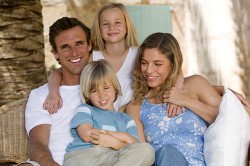The genetics behind parental care
Research has offered a number of interesting ideas on parent-offspring interactions. Parents increase offspring fitness (survival and future reproduction) by providing care, such as food. Offspring often engage in solicitation behaviours that elicit care by their parents – for example, begging by nestlings of birds. Co-adaptation has to do with offspring demand and parental supply and the possible fitness costs if this relationship is disrupted. The project FAMILY AFFAIRS (Parental care: Shaped by parent-offspring conflict and co-adaptation) has enhanced knowledge regarding the fitness implications and underlying genetics of parent-offspring conflict and co-adaptation. Focusing on wild blue tits (Cyanistes caeruleus), the study integrated approaches from behavioural ecology and quantitative genetics in an ecological setting. Blue tits have extensive bi-parental care. Both parents provide food to the offspring, and they also readily accept nestboxes for breeding. This makes it relatively easy to study parental provisioning and offspring begging behaviour in a natural setting. The team conducted a large-scale experiment in a free-living population of this common songbird. They tested 184 broods during two consecutive breeding seasons. Study findings point to an absence of fitness effects for cross-fostered broods when compared with non-cross-fostered broods. This confirms the use of cross-fostering as a standard approach and valid method for assessing the relative importance of genetic and environmental influences. Cross-fostering of broods is the laboratory practice of removing offspring from their biological parents at birth to be raised by surrogates. However, some males did lower their provisioning while caring for another brood, while females compensated for the reduced provisioning efforts of the males. This can be considered a possible explanation for the absence of fitness effects in cross-fostered offspring. Overall, the findings raise questions regarding the factors at play in reduced male provisioning behaviour. Project results were presented at international scientific conferences and will be published in peer-reviewed scientific papers. Ongoing research on the study population has also been presented to a broader audience through various outreach activities, including a popular science lecture and a brief feature on television. This research offers an improved understanding of how evolutionary conflict and co-adaptation shape social interactions within families. Future studies in the field will be better able to assess the relative influence of genetics and the environment on development and behaviour.
Keywords
Genetics, parent-offspring interactions, evolution, family life, parental care, co-adaptation



